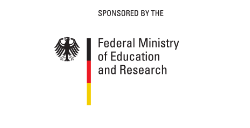
Alternative routes to complex animal societies: cichlids as model
Understanding the evolution of cooperative animal societies is one of the biggest challenges in behavioural biology. Some of the most derived social systems are shown by cooperative breeders, where helpful individuals forgo their own reproduction to the benefit of others. A common explanation is that helpers gain indirect fitness benefits by aiding relatives. However, such benefits cannot explain the occurrence of unrelated helpers. In my talk I will introduce lamprologine cichlid fishes from Lake Tanganyika as amazing model system to study the role of environmental settings in the evolution of cooperative breeding.Understanding the evolution of cooperative animal societies is one of the biggest challenges in behavioural biology. Some of the most derived social systems are shown by cooperative breeders, where helpful individuals forgo their own reproduction to the benefit of others. A common explanation is that helpers gain indirect fitness benefits by aiding relatives. However, such benefits cannot explain the occurrence of unrelated helpers. In my talk I will introduce lamprologine cichlid fishes from Lake Tanganyika as amazing model system to study the role of environmental settings in the evolution of cooperative breeding.Understanding the evolution of cooperative animal societies is one of the biggest challenges in behavioural biology. Some of the most derived social systems are shown by cooperative breeders, where helpful individuals forgo their own reproduction to the benefit of others. A common explanation is that helpers gain indirect fitness benefits by aiding relatives. However, such benefits cannot explain the occurrence of unrelated helpers. In my talk I will introduce lamprologine cichlid fishes from Lake Tanganyika as amazing model system to study the role of environmental settings in the evolution of cooperative breeding.





